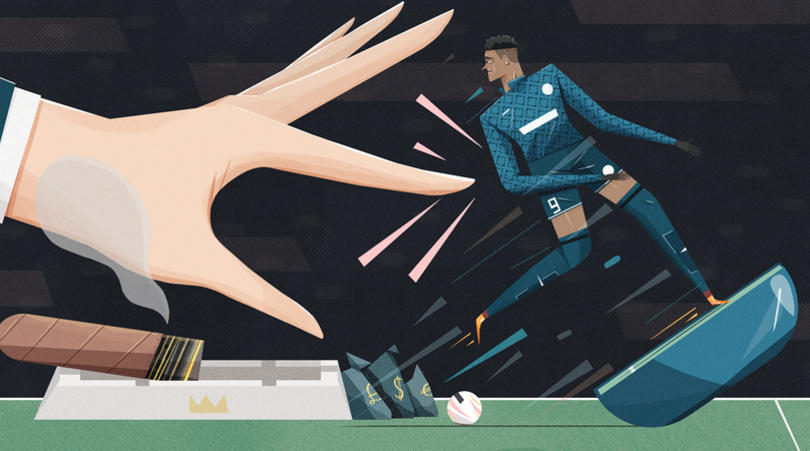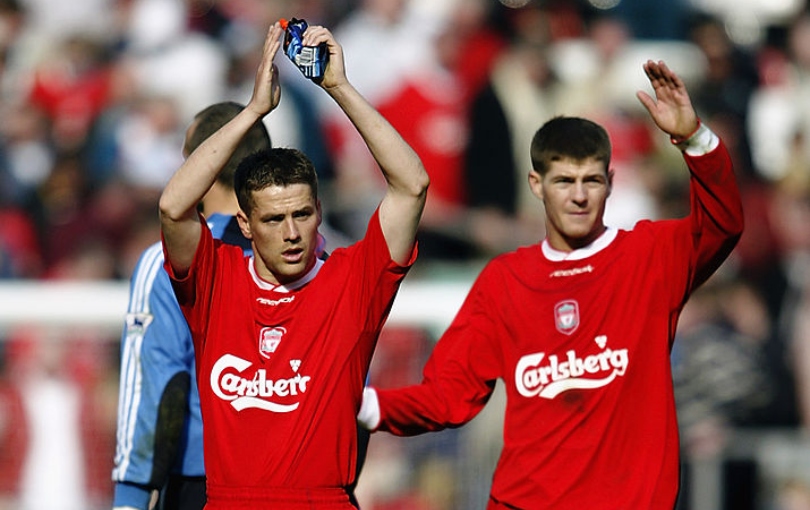The long way round: How Unai Emery became a self-made obsessive – and Arsenal's chosen one
The Gunners chief faces former club Valencia in the Europa League semi-finals on Thursday night – arguably, the place where he learned most in a rollercoaster managerial career
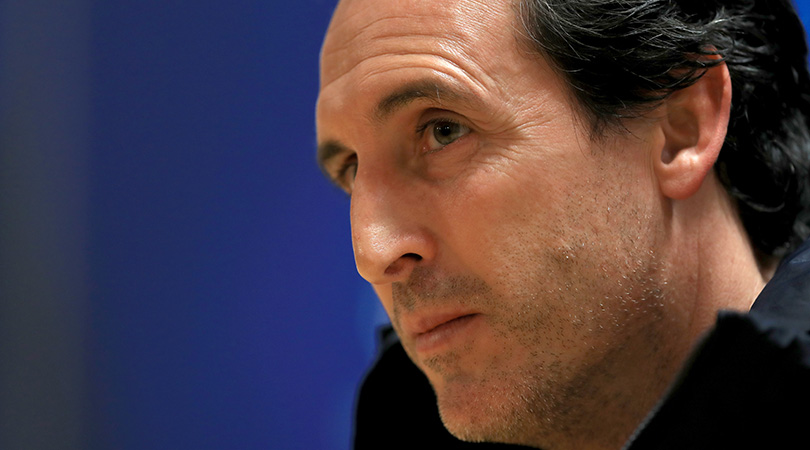
Please note: This feature originally appeared in the August 2018 of FourFourTwo. Subscribe today! 5 issues for £5
The French-Catalan flatulist Joseph Pujol boasted impeccable bowel and sphincter control. Better known by his stage name Le Petomane – a neologism meaning ‘the farting maniac’ – Pujol enthralled late-19th century crowds across France with his ability to break wind tunefully.
Not only could he fart La Marseillaise, Pujol could also perform vignettes from Offenbach to Verdi; from an elephant’s deep bass to the domineering snarl of a French president. Pujol could even sit, like a yoga instructor, in a bowl of water and draw the liquid up inside himself, before squirting it out up to five yards across the stage.
Many people believed Le Petomane’s prodigious gifts to be a genetic anomaly, but they were the result of meticulous practice and relentless discipline. Pujol dedicated hours every day to refining his act, one which fascinated packed Moulin Rouge audiences and counted the future king Edward VII among its celebrity admirers.
Unai Emery is no different, intestinal workings and royal approval aside. The Spaniard is both a football obsessive and avid reader, someone whose success is as much a result of his relentless hard work and quest for self-improvement as any innate tactical awareness. Sevilla’s coaching staff used to joke that Emery spent so long working at the training ground, he’d end up eating three meals a day there.
Emery’s motto is simple and applies to both his players and himself:“Con talento y sin talante no llegamos, pero con talante y sin talento tampoco.” With talent but not the will, we won’t get anywhere, but neither will we with the will and no talent.
Any Arsenal player who hoped for an easy post-Arsene Wenger ride with the autonomy to please themselves would do well to read on. Instead, they’ll be facing questionnaires, training sessions as intense as the North London derby and videos. Lots of videos.
Get FourFourTwo Newsletter
The best features, fun and footballing quizzes, straight to your inbox every week.
In the blood
Unai Emery Etxegoien hated playing football. Born in Hondarribia, the picturesque port town on Spain’s northern Basque border with France, he soon realised that the family business may not be for him.
His father and grandfather were both goalkeepers of distinction – the latter, Antonio, conceded La Liga’s first ever goal in February 1929, a 3-2 defeat for Real Union at Espanyol. But young Unai increasingly allowed his worries to consume him, and instead paid more attention to Spanish comics such as El Jabato (The Wild Boar) and the slapstick Mort & Phil than football.
“I was something of a wimp,” he later admitted. “When I didn’t get picked, I’d breathe a sigh of relief – I felt so under pressure.”
Emery’s silky left foot brought five appearances for Real Sociedad in 1995/96, and he scored in an 8-1 thrashing of Albacete. However, he slowly drifted down Spain’s football pyramid, sucked onto “a hamster wheel which you can’t get off” with a series of short-term deals at Racing Ferrol, Leganes and Lorca Deportiva in his early 30s.
Unable to shake off a persistent knee injury at Lorca, Emery began taking his coaching badges. Once told by Sociedad boss John Toshack that “a good coach must be the opposite of what they were as a player”, Emery realised that to ‘reach’ a player, you had to understand them as people in a way that “none of my managers could overcome my deficiencies as a player”. Yes, he was talented and read the game well, but no coach had ever lit the fire to get the best from Emery the player.
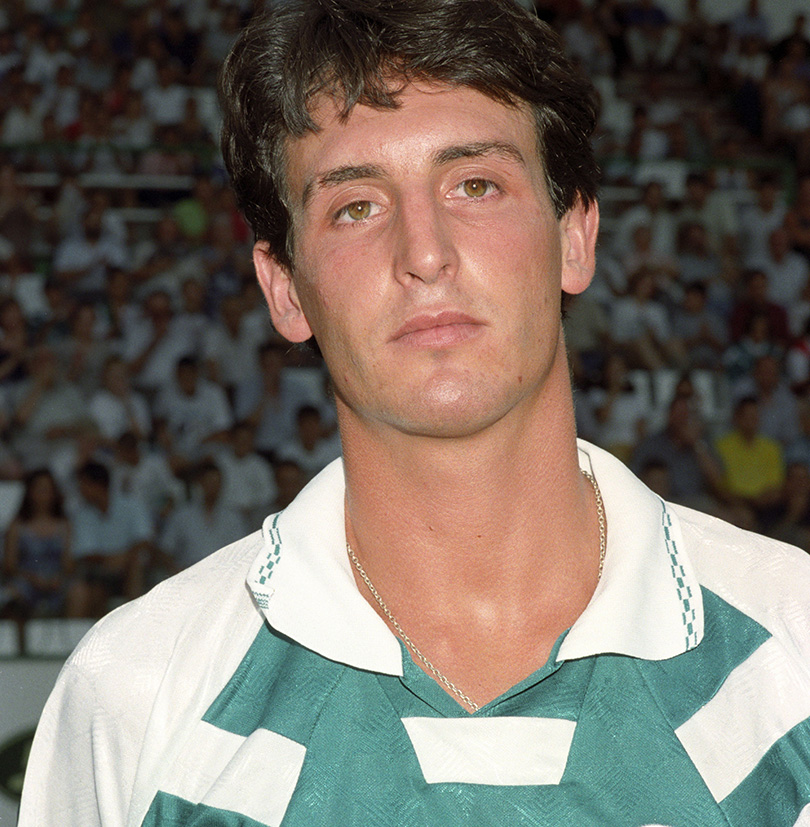
But over Christmas 2004, Emery the manager got his first chance to shine. With Lorca mid-table in third-tier Segunda B, director of football Pedro Reverte replaced manager Quique Yague with the injured midfielder, so impressed was he with Emery’s tactical brain from the stands. Yague thought his senior player had stabbed him in the back. The pair haven’t spoken since.
“We had seven days’ holiday over Christmas and I said goodbye to my team-mates like any other player,” Emery later recalled. “I came back and said: ‘Hi, I’m your new coach’. It was difficult, but I got so involved in my role from the start that I didn’t think about it – I knew the players so well that it all flowed fairly easily.”
The long walk home
Resembling a hyperactive vampire, Emery’s enthusiasm revitalised Lorca’s season. When Juan Carlos Ramos scored an extra-time winner from the halfway line to secure promotion in a play-off at Real Union, Lorca’s new manager ran onto the pitch to celebrate with his players. Overcome with emotion, Unai walked the 10 miles back to hometown Hondarribia to try to calm down.
When little Lorca were just a game away from sealing promotion to La Liga the following season, the vultures began to circle. “We were living the dream,” said captain Antonio Robles. “We were so well prepared for games and he injected us with a moral backbone necessary to think of ourselves as better than our opponents.”
Almeria was more famous as the setting for Sergio Leone masterpiece The Good, the Bad and the Ugly than anything its modest football team had achieved, before a new sheriff swaggered into town in 2006. The 35-year-old achieved immediate promotion for the Andalusians and made no effort to hide his ambition. Or his name.
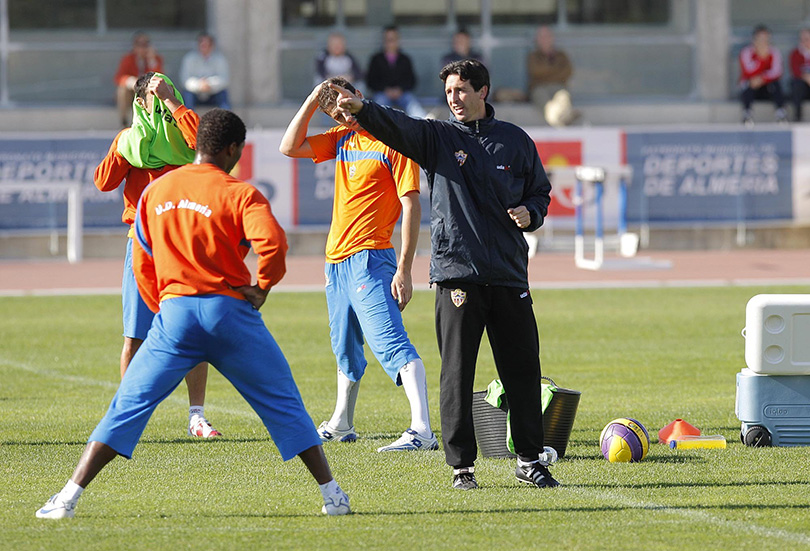
“Emery’s desire to improve in every training session was contagious, everything was at match intensity,” former Almeria midfielder Miguel Angel Corona tells FourFourTwo. “We knew we were competing against better teams, so we had to be better without the ball and more clinical with it, because we’d have fewer chances.
“We’d spend half the week working on dead-ball situations because we knew they were our best route to goals – ball in the box. Unai was very quick to realise that and changed training accordingly. It was the intelligent way to go and Unai is so intelligent.”
More than 50% of Almeria’s goals that season came from set pieces.
Video killed the football star
It was with Los Rojiblancos that the Basque’s love of video analysis came to the fore. He once gave a player he suspected of not watching his weekly video an empty flash drive to test his response a few days later. “Oh brilliant, boss,” said the slacker. “Spot on as ever.”
From then on, Emery has dedicated a dozen hours a week to going through videos he prepares with assistant Juan Carlos Carcedo – who has followed him to north London – with each player.
“He’s a colossal pesado [pain in the arse] and the players hate him,” revealed one unnamed player. “Team talks went on forever, players fell asleep, video sessions were interminable, as was dead-ball practice. You watch videos for hours and hours and think it’s a load of bollocks... but it works. It’s so relentless that in the end every single player knows exactly what he wants.”
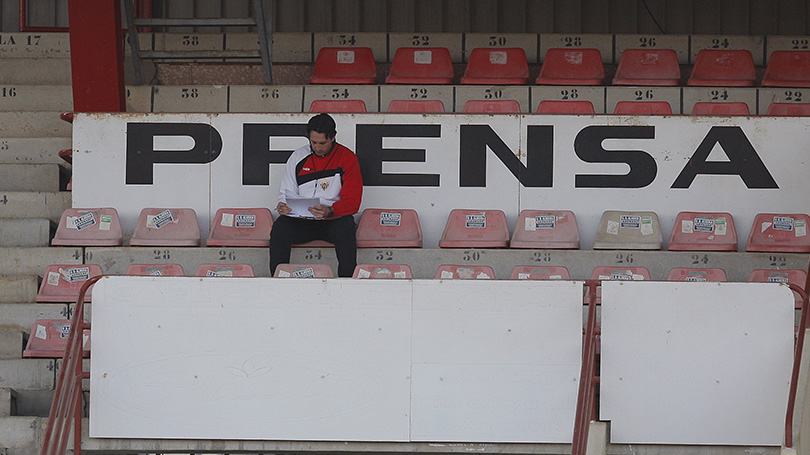
Emery maintains that his proudest moment as a coach came in that season, after then Zenit Saint Petersburg manager Luciano Spalletti had eulogised about his Almeria side. A few weeks later, “Zenit scored a goal from the exact move we practise every week”.
“You’re often faced with the scariest thing as a footballer – yourself,” laughs Corona. “You have to see your own mistakes, brutally in front of you. However, if you want to improve, there’s no problem in watching a few videos of yourself.
“Emery never stops. I went on a family holiday and my dad got me a book to read, except he’d already been tapped up by Unai to get me to read it. Apparently he told my dad: ‘Buy him the book and read it to him if you have to.’”
NEXT: “I learned so much from him in that season, especially how to take advantage of attacking opportunities”
Hungry Unai
It all helped. In their first La Liga season, Almeria finished eighth and beat champions Real Madrid 2-0 at the Juegos Mediterraneos in February 2008. The latter was an Emery masterclass in preparation. “Emery eats Madrid,” cheered El Pais the following morning. Earlier in the week he had done exactly that, devouring a meringue (Madrid’s nickname) on the cover of sports daily Marca.
“Unai sent us onto the pitch knowing that every Real Madrid attack was born with Guti,” recalls Corona, now Almeria’s director of football, “and if we cut off his supply, then we’d have a chance. As a midfielder, my job was to make his life as uncomfortable as possible. Not just that, I got two assists!
“Even then we knew it would be difficult to repeat a season like that. Almeria is a very small club, so to finish eighth above teams with huge budgets and fanbases was exceptional. He did so much for us.”
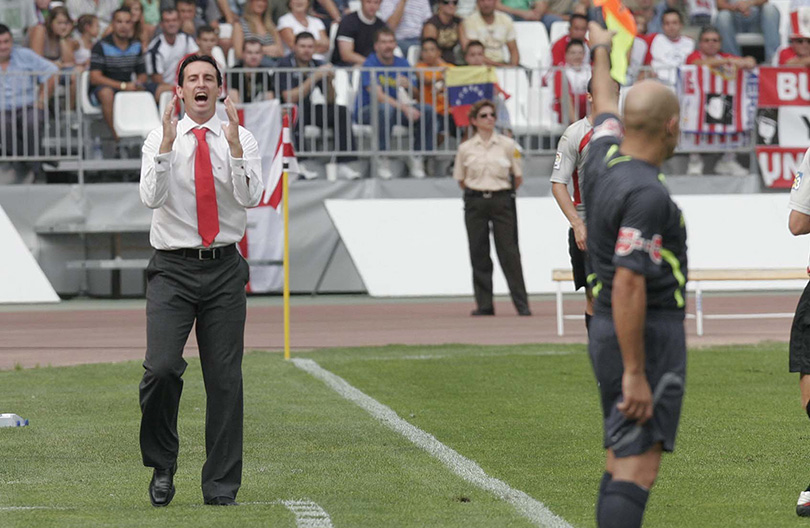
A strong spine was paramount. Diego Alves, Carlos Garcia and Alvaro Negredo have all gone on to have fine careers, particularly the latter, whom Emery plucked from Real Madrid’s reserves – but Unai’s genius in producing gold from iron pyrite was the bedrock.
In 2007/08, Almeria beat Sevilla home and away, drew 2-2 at home to Barcelona and took four points off runners-up Villarreal. “I learned so much from him in that season, especially how to take advantage of attacking opportunities,” future Inter midfielder Felipe Melo, who joined Almeria as a winger and left as one of Europe’s most in-demand box-to-box marauders, tells FourFourTwo.
“‘Well you’ve come to the right place’, he told me when I asked to play as a defensive midfielder to get closer to the Brazil squad. ‘This is the start of your dream come true’. Regardless of your job, a human being must always be sincere. Unai is just that. I’m happy to call him a friend.”
Fighting the tide
Performing minor miracles with no money, Emery piqued the interest of financially stricken Valencia in 2008. The days of reaching successive Champions League finals or winning La Liga and the UEFA Cup under Rafael Benitez were long gone. Los Che were haemorrhaging money – constructing a new stadium weighed like a millstone – and in the four years Emery spent at Mestalla, the club flogged David Villa, David Silva, Juan Mata and Isco. Champions League qualification was a must.
“He’s such an efficient coach, making the best with what he’s got,” explains Juan Carlos Cubeiro, Spain’s foremost authority on leadership, with whom Emery wrote Mentalidad Ganadora (Winning Mentality) on the secrets to his success.
“The president Manolo Llorente told him that he had to sell the best players, make the bad players leave and with the middle ranks you’ve got to qualify for the Champions League. It’s all about understanding his players – he’s always said that you have to win over their minds. That’s easy to say, but not so easy to do. That’s his trademark.”
He faced significant scepticism. The club captains Carlos Marchena, Raul Albiol and David Albelda – whom Emery brought in from the cold – were barely on speaking terms, while players were used to matchday lie-ins, getting together for a brunch that was neither healthy nor at the right time of day to prepare for a match.
After limping to sixth in his first campaign, Emery then sealed three successive third-place finishes. Nobody represented the increasingly harmonious squad better than Ever Banega. Before Unai arrived, the Argentine midfielder was a law unto himself. On loan at Atletico Madrid in 2008/09, the Crazy Goat’s extracurricular activities included a spot of online onanism leaked to the press, running a red light (while over the limit) and falling asleep in team meetings after one mineral water too many the previous evening.
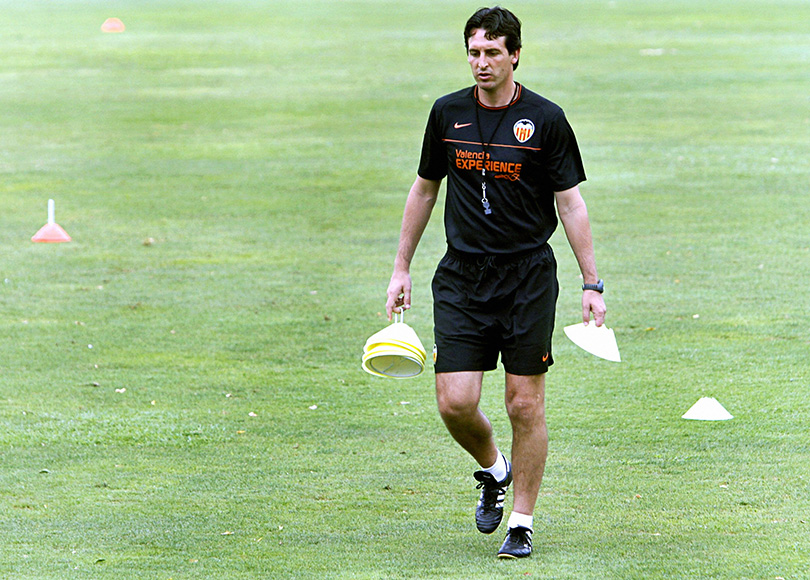
Banega admitted: “I’ve done nothing to warrant them keeping me” but Emery devised a fitness plan for the midfielder, convinced of the talent inside. Admittedly, Banega suffered something of a relapse by running over his own ankle at a petrol station in February 2012, but the constant video analysis, individual meetings and moral support worked. The Argentine international would continue to thrive under Emery at Sevilla.
“Unai worked a lot with Ever in the early days,” says Cubeiro. “About where he saw himself and his career. Without him, I don’t think Ever would be the same.”
What Banega, along with the rest of Valencia’s squad, appreciated most was Emery’s readiness to front up. The manager admits that his worst moment in football was the press conference after a 6-3 home defeat by Real Madrid in April 2011. Yet in the game’s dying minutes, Emery stood at the edge of his technical area so he could absorb the crowd’s calls of “burro, burro, burro” (donkey, donkey, donkey) instead of his punch-drunk players.
“Football is one of the best metaphors for leadership,” says Cubeiro. “You’re competing all of the time and you get constant results of how well you’re doing. A lot of effort goes into inspiring people every day.”
Fan club
Despite winning Spain’s league within a league once again, Valencia let Emery go in the summer of 2012. Supporters were unable to accept six wins in 13 knockout matches and seven points from a possible 48 against Real Madrid and Barcelona, despite running the Catalans close on several occasions.
“I’ve got a great opinion of Unai,” said Pep Guardiola, who was Emery’s first Premier League opponent when Arsenal hosted champions Manchester City. “It’s no coincidence that Valencia took on Real Madrid and Barcelona under him.” No matter, Los Che’s fans believed Emery’s pragmatism outstripped his mentalidad ganadora.
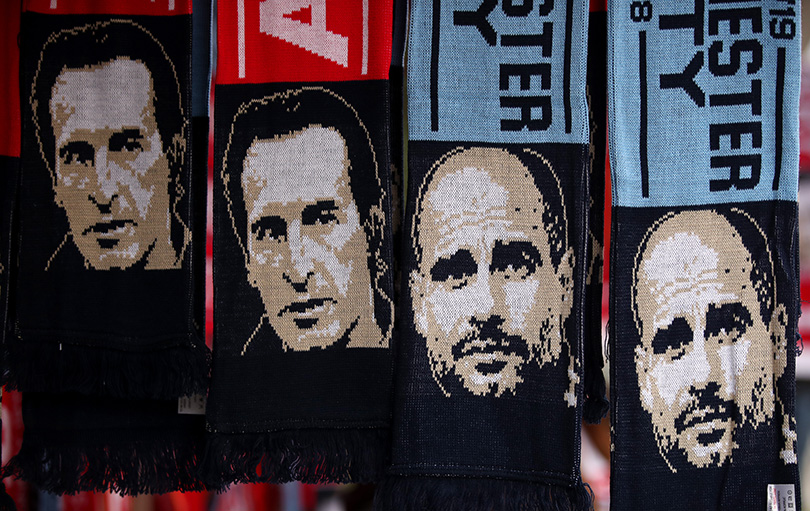
Six unimpressive months at managerial graveyard Spartak Moscow – including a 5-1 derby demolition by Dinamo – followed, before Sevilla came calling at the start of 2013. The fit, alongside director of football Monchi, was perfect. ‘Comprar bien, y vender mejor’ is the motto on the banks of the Nervion. Buy well, and sell better.
With Monchi’s backing, Emery’s method remained the same as ever. A Proust questionnaire to understand his squad – sample questions: your best virtue; what you appreciate most in friends; your favourite poet – and hard work to achieve results.
“I wasn’t born a coach, I made myself one,” Emery later reasoned. “I wasn’t born with a surname to allow me to play at the elite level, so I had to win for myself. Your credibility comes from results, cemented in the dedication I’ve transmitted. If I’ve got better and been successful, it’s because I’ve had a group determined to work as hard as me, and they feel the need to go harder when we fail.”
Fail they did. Sevilla finished a lowly ninth, only reaching the 2013/14 Europa League because Malaga failed FFP and Rayo Vallecano were refused a European licence by the Spanish FA for not meeting creditor payments. Both had finished above Los Rojiblancos.
Eventually, the hard work paid off. Controlling all aspects of training from the timetable for cutting the grass – “I like the smell of the pitch, it produces a sort of comfort within me,” Emery admits – to recording training sessions using a camera strapped to his head, the sustained instruction worked.
NEXT: “The day I go and play golf, somebody should come and take me away because I’ll be good for nothing any more”
Obsessed
Emery watches every match four times; once live, again in full, then smaller highlights and finally in a conference with his players, each of whom brings his own snippets to the table. Information, the manager reasons, is power. Even on his rare days off, he’ll watch football.
“I was born like this – the day I go and play golf, somebody should come and take me away because I’ll be good for nothing any more,” he said when questioned about a matchday video at Sevilla in which he’d shouted individual instructions at every player with 10 minutes of the game gone, including the goalkeeper.
“That’s how I live for football. Training is no different. I’m on top of the players. My assistant is the same. Calling us pesados I believe to be something positive.”
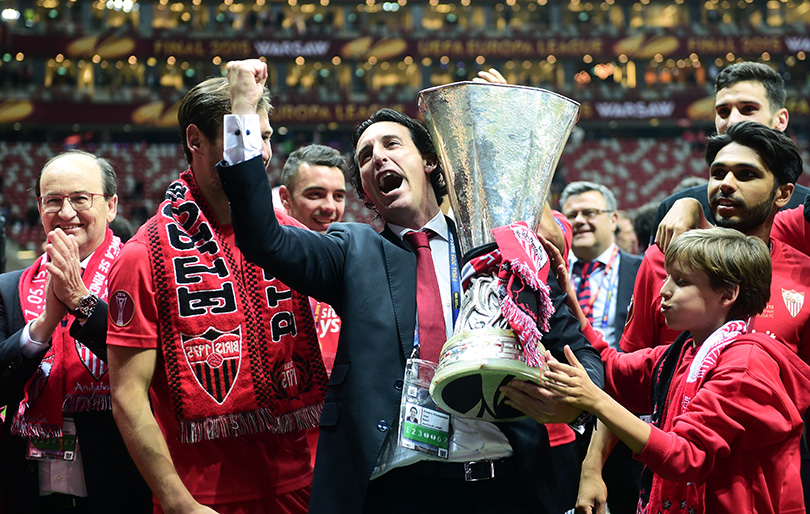
Emery also listened. Frustrated that playmaker Ivan Rakitic couldn’t create from defensive midfield in a 4-2-3-1 formation, fans persuaded their manager to deploy the Croat off Colombian striker Carlos Bacca for the November 2013 trip to Espanyol. “I’m not going to die with my ideas,” he reasoned after the 3-1 win. Rakitic stayed there, becoming the creative fulcrum of the first of Sevilla’s three Europa League titles before joining Barcelona.
While players came and went, the counter-attacking, zonal system remained in place. The 2016 Europa League Final against Liverpool in Basel was the definitive Sevilla display under Emery. Trailing to Daniel Sturridge’s fine effort at half-time, Emery reminded his team that the only way to beat Jurgen Klopp’s press was to sit deep and counter-attack, exposing their limited backline of Nathaniel Clyne, Kolo Toure, Dejan Lovren and Alberto Moreno. The Andalusians roared back to win 3-1.
If there’s one thing that concerned Arsenal supporters about Emery’s appointment, it’s his two years at Paris Saint-Germain. In his first, PSG lost a one-horse Ligue 1 race to Monaco and let a 4-0 first-leg lead slip against Barcelona in the Champions League. His attempts to install a zonal system failed, as did trying to advance Marco Verratti a la Rakitic, but it was Neymar’s £200m arrival in his second campaign that spelled trouble.
The poster boy of the Qatari owners’ project wouldn’t conform to Emery’s team-centric dynamic; the Brazilian’s on-pitch squabble with strike ‘partner’ Edinson Cavani proving the size of his manager’s task in the French capital. The coach naturally sided with the Uruguayan, but knew he couldn’t call out the world’s most expensive player in public.
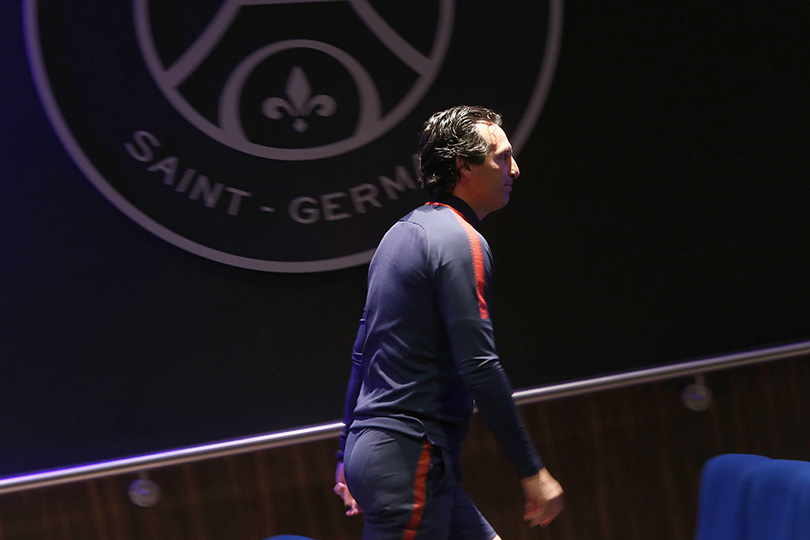
“What any team needs is an on-field general – a second manager who you can trust to talk to his team-mates and they will all listen,” says Cubeiro. “A Mascherano, who united Messi, Suarez and Neymar on the pitch more so than Luis Enrique or any other coach.
“Management has to be more horizontal than vertical. It can’t just come from the top, from Unai. That doesn’t exist in Paris and that’s where any problems came from.”
Despite winning a domestic treble, a 5-2 aggregate defeat to Real Madrid in the Champions League last 16 – the side noticeably devoid of belief without the injured Neymar – meant the end for Emery.
“People say it’s easy to win those trophies with PSG... come on, it’s never easy to win anything in football,” says Melo. “You say he didn’t win the Champions League. Did Barcelona? Did Bayern Munich? Did Manchester United or Manchester City? No. Only Real Madrid.
“Emery made history in Paris. I just hope he can replicate it now at Arsenal – I’m sure he will. He’s not only an expert in tactics, he’s also fantastic at managing people, uniting a squad and bringing them all together.”
A new chapter
What Arsenal have, then, is a football geek who prides himself on squeezing the maximum from his players, if only they’ll listen. Like Parisian flatulence professionals who’ve gone before him, he will stop at nothing to ensure constant improvement of himself and his team.
However, unlike La Petomane, he still manages his own Twitter account and website; one which used to dish out prizes to people who guessed his starting XI at PSG each week.
“He’s one of the best coaches in Europe,” says Cubeiro. “He has never been unemployed since joining Lorca in 2004, which tells you everything. The Premier League will admire Unai, you’ll see how much work goes into each game. The rewards will come. Arsenal will be one of the best teams in the league next season.”
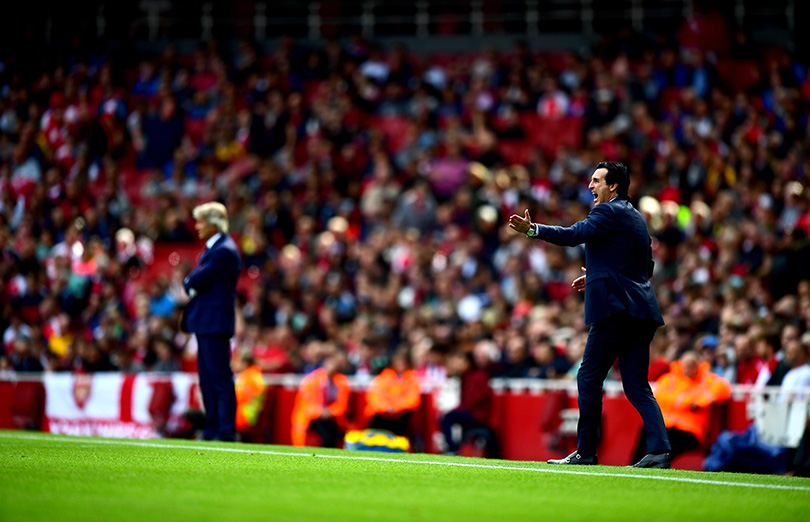
Former Almeria midfielder Corona is no less certain, citing the huge improvements he knows the north Londoners will inevitably make at set pieces under Emery. “Unai is the best coach I’ve ever played for – it’s that simple.”
There’s a quote you may have read when Emery took the Arsenal job, a ‘pesado’ stick with which the 46-year-old is frequently beaten. “Emery put on so many videos that I ran out of popcorn,” quipped Joaquin, who played under the Spaniard at Valencia, before the winger’s Fiorentina faced Sevilla in the 2014/15 Europa League semi-final second leg. “He’s obsessed by football, it’s practically an illness. I worked with him for three years. I couldn’t handle a fourth.”
Yet context is everything, and nearly every report left out the pay-off: “He’s one of the best managers I’ve had.” Sevilla completed a 5-0 aggregate win in which Joaquin barely touched the ball. “We’d spent three days working on how to stop you,” Emery told Joaquin at full time, “first with videos, then on the training pitch.”
“Yeah, yeah,” replied Joaquin. “I know.”
This feature originally appeared in the August 2018 of FourFourTwo. Subscribe today! 5 issues for £5
Then read...
QUIZ! Can you name the 55 Europa League semi-finalists since 2000?
Andrew Murray is a freelance journalist, who regularly contributes to both the FourFourTwo magazine and website. Formerly a senior staff writer at FFT and a fluent Spanish speaker, he has interviewed major names such as Virgil van Dijk, Mohamed Salah, Sergio Aguero and Xavi. He was also named PPA New Consumer Journalist of the Year 2015.
